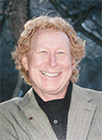Critical Commentary
On Cattails and Sagebrush:
“Poetry is a form of literary art which uses aesthetic and rhythmic qualities of language – such as phonaesthetics, sound symbolism, and metre – to evoke meanings in addition to, or in place of, the prosaic ostensible meaning. “Cattails and Sagebrush” is an 86 page compilation of poetry by Victor Pearn and well deserves the definition of ‘literary art.’ The subject matter of his musings range from the Colorado tundra to the Chinese tomb of Confucius, and from our three daily meals to a local park. Deftly written and using words the way an artist uses paints, the prose poetry of Victor Pearn creates memorable images that last long after this anthology has been set back on the shelf. From” Three Things Not Omitted: “The Farmer’s bank on the West side of the / square was the tallest building in town and / towered seven stories into the sky. // On the East side of the square / there was a jewelry store. // The park had a flagpole with / old glory waving in the breeze.”
--Library Bookwatch, October, 2013
Book Review
Poetry expresses ourselves in many ways. “Apricot Harvest” is the twelfth book from Victor W. Pearn, longtime poetry enthusiastic and longtime teacher, bringing his passion and world travels together for his latest volume. A treat for poetry readers, “Apricot Harvest” shouldn’t be quickly overlooked, highly recommended. “An ignorant commune”: Have they eaten all the wild / animals on their land? / Are they / now trying to / eat all the insects?
James Cox, Editor-in-Chief, of the Midwest Book Review
mwbookrevw@aol.com
http://www.midwestbookreview.com/
SOUTHWEST BOOK VIEWS by Jeanie C. Williams
Devil Dogs and Jarheads by Victor W. Pearn
(Busca, Inc., P.O. Box 584, Ithaca, NY 14851
ISBN 0-9666196-3-3, trade paper, 2003, $14.95)
This poetic self-portrait based on the poet’s training in the US Marines during the Vietnam War era is a celebration of the soldier-poet out in the world fully armed, senses cocked. Pearn’s work is gutsy and compassionate as history and art come together in a powerful healing force: “Under starlight we stand silently / wondering what will happen to us. // We are not in uniforms yet, / and we do not know how to march. // When it is your turn you are told / to quickly enter through the door / sit in the first chair you find. // This all happens with blinding speed, / within the first thirty seconds.” (From “Yellow Footprints.”)
The author grew up in Illinois and now lives in Colorado; his previous works include the chapbook Swans Pausing and American Western Song, Poems from 1976-2001. His words make you feel as if you are personally experiencing the things he is describing: “In training we are / being taught to / have clear vision / as the eagle / to have / sensitive hearing as / the deer, to detect / a scent as the bear. // Jet planes fly overhead. // It is quiet. // I rest on my back, / listen for the chime / of hourly mission bells / to ring their nightly beauty. // Across the bay, in the distance / lights shine on the coast.” (From “The Gates of Heaven are Guarded by US Marines.”)
His work is as tough-minded as it is tender hearted, and he is one of those rare individuals whose writings are both sweet and reasonable: “Nobody gets up this early, / not tough birds / not sea gulls. // Starlight at morning chow. (From “Take What You Want But Eat What You Take.”)
For Pearn, this represents his life’s journey; a child of the 60’s he has tasted both the bitter and the sweet: “Walt Disney proudly / displayed his Dishonorable / Discharge on the wall / of his office behind him / when he talked on his show. // Steve McQueen stole a tank / painted it pink and drove / down the main street in Oceanside / and they gave him a Dishonorable. // John Wayne played the role / of jarhead in the movies / a real Hollywood marine / he was so well loved / real marines idolized him.” (From “Famous Marines.”)
This is poetry that is not divorced from reality. It illuminates a pervading theme: the contradiction brought about in the mind of a soldier-poet as he witnesses the dissolution of the pastoral world around him. The experiences shared in this collection are etched indelibly upon the heart of the writer and now the reader in words the world can little afford to ignore. This is undeniably exquisite work.


